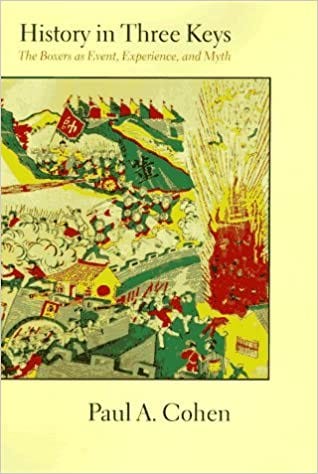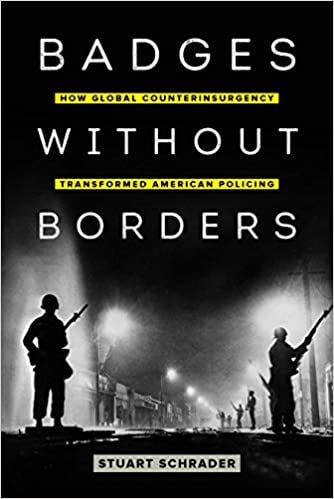The books behind the book, Vol. 2
Last month I did a post about a few of the many books I used to research Gangsters of Capitalism (out everywhere Tuesday, pre-order, pre-order, pre-order). You guys seemed to like it, so let’s do it again.
All the books I’m listing this time are good reads. (One is in Spanish if that’s your thing.) They are all also, as always, valuable resources for exploring the many themes I tackle in Gangsters. This edition’s themes include drug trafficking, police brutality, historical memory, and mental trauma.
Ready? Here we go.
History in Three Keys: The Boxers as Event, Experience, and Myth
Paul A. Cohen
I picked this one up expecting to get some useful information about, you know, the Boxer Rebellion. I did not expect one of the most powerful exegeses I’ve ever read on history and memory in general. As the title suggests, Cohen tells the story of the Boxer uprising three ways: First, he recites the scholarly consensus of the events in China of 1899 and 1900, in which loosely organized peasants—known in the West as “Boxers”—rose up against Christians and foreign control, prompting a massive invasion of eight foreign powers including the United States. Then he tells the story again from the bottom up, focusing on the Boxers’ perspective. Finally, he explores the path and memory of those events in contemporary China and the West. It was essentially what I was trying to do in my book—revealing both untold history and its uses and suppression through time—except hyperfocused on one incredible episode. I enjoyed it so much that after returning it to the library I bought my own copy to keep around.
(Related programming note: Our next Gangsters Movie Night podcast is about the Boxers, via 55 Days at Peking, a 1963 Western-in-China starring Charlton Heston and Ava Gardner. Should drop early next week, here or wherever you get podcasts.)
Badges Without Borders: How Global Counterinsurgency Transformed American Policing
Stuart Schrader
There is a chapter-sized Easter Egg in Gangsters: In the 1920s, Smedley Butler took a leave from the Marine Corps to run the police department in his hometown of






